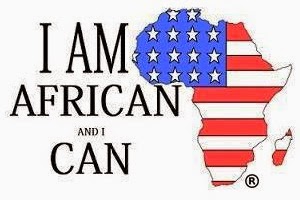One Million 'P.A.D.S' for One Million Girls
The girl who once lacked confidence has transformed into a woman vested with abounding confidence. This woman, Hananatu Tunis, is now empowering one girl at a time.
When Tunis walks in a room, she effortlessly captivates attention. She's petite in size, but don't for a second underestimate her mental strength.
The 25-year-old humanitarian is the celebrated mind behind "One Million Girls." She launched the campaign October, 2013 to help young girls in developing African countries feel dignified, by providing them both sanitary products and training on self-confidence.
Her experience as a pageant girl, Miss Liberia U.S, Miss Africa U.S, and Miss Intercultural, paved the way for all the projects she had brought to life.
"When I look back, I always felt the need to reach out," said Tunis.
As a young girl, Tunis subconsciously wanted to become a humanitarian. She believes that the actions she took earlier throughout middle school and high, foreshadowed the humanitarian work that she is doing today.
"HT, is someone who I consider a trailblazer and a visionary of her time," expressed Elisa Perkins, M.Ed., Student Affairs Professional at The University of Texas at San Antonio. "It has been inspiring to watch her perfect her craft through projects like 'One Million Girls,' this woman is going to places!"
Since the launch of "P.A.D.S" (Prepared and Driven for Success), approximately 2000 pads have been dispatched to Monrovia, Liberia, all with the help of friends, family and supporters.
A pad, represents femininity. Through the "P.A.D.S" project, young girls are educated on taking care of themselves.
So, what propelled this self-starter to launch a project with a platform to "empower, educate and energize the girl child?"
Tunis, is a leader who leads from the front. She travels all the way to the Continent of Africa to distribute the sanitary items, and also to inject some of her confidence in the girls.
Her confidence is contagious. She wanted to touch girls all over the world, but her first destination had to be Liberia, where her parents are from.
Upon her arrival, Tunis stands before a room filled with girls waiting to hear about "One Million Girls." She gives a lengthy and meaningful speech about why she's there, gets to know the girls, shares her story, then begins the workshop.
During the workshop, the girls are introduced to "Love the Skin You're In," a creative tool Tunis and friend Serena Mohamed came up with to help the "One Million Girls" embrace their beauty.
Beauty, according to Tunis, is not solely defined by external attractiveness, it is a feeling we get from looking at someone from within.
The girls also do a magazine exercise, where they waddle between pages searching for images of women they "think" are beautiful and give explanations as to why they find those women beautiful.
Once the girls have come up with their own definition of beauty, Tunis reiterates her perception.
At the end of the workshop, the "One Million Girls" do a mirror activity, where they look at themselves in a mirror and talk about what they see. The girls are also given the chance to walk the run way --in the classroom-- and show off their anew and empowered self. They will, by then, have a clear understanding of how they should see themselves and the world.
Tunis' mission, is to empower the girls to the point where once they walk out of the classroom, they can also empower other girls. According to the founder of "One Million Girls," this, is how one million girls will be touched.
Granted, the young girls not only walk away with sanitary items, they walk away with power. The power to influence other girls.
Tunis founded a non-profit organization, "FashPhenomenon," on 4 September 2009. She calls it her "first baby," because it was introduced to the public before "One Million Girls." "FashPhenomenon" gives way for girls to express themselves through fashion.
2014 is off to a good start for Tunis. She terminated her studies at St. John's University, with a major in public relations and minor in public address.
Originality, grace, confidence, she has it all.
This young, driven humanitarian is "building an empire of service." She aspires to serve the homeless, and also is working on a project geared towards promoting the business woman. The door to success is wide open. Tunis, will be marching fiercely through the door of success alongside her one million girls.
A Glimpse of Tunis' World
Tunis posing with her pageant sisters
Spreading the word about her cause
"One Million Girls"
04/24/2013
Tunis at St. John's University introducing "P.A.D.S for Kenya"
She partnered with the Student Government Association to raise sanitary products for women and girls in Kenya
Launch of "P.A.D.S for Kenya"
(L-R) Jaamal Brown, Assistant Director of Multicultural Affairs & Leadership, Tunis, David Gachigo, Associate Dean of Student Life at St. John's University
Tunis in New York introducing FashPhenomenon's "Love the Skin You're In" workshop to a group of young women
The founder proudly holding up a T-shirt of the "One Million Girls" logo
On 31 March 2012, Tunis received an "Excellence in Service" award from Sigma Gamma Rho Sorority's Rho Xi's Chapter
(L-R) Tunis, Tunis' mom
Tunis' P.A.D.S project earned her 2 awards from St. John's University (1st place in Business Plan Expo competition, and best Social Entrepreneurship plan)
Tunis was featured in Revlon's September 2011 issue as
"Revlon's Role Model of the Month"
Once a winner, always a winner
Tunis being crowned Miss Intercultural, 18 July 2009
Donations from "One Million Girls"
supporters
Prideful and happy "One Million Girls" in Liberia showing off their sanitary kits
The Magazine Exercise
The "One Million Girls" from Cathedral Catholic High School looking through magazines Tunis brought from the United States
A Proud Liberian
Ways to reach Tunis:
Twitter: @Heyits_hana
Instagram: @Heyits_hana
YouTube: Hana T
Facebook: Hanatu T. Tunis





.jpg)



.jpg)
.jpg)




.jpg)




.jpg)

.jpg)
.jpg)











.jpg)